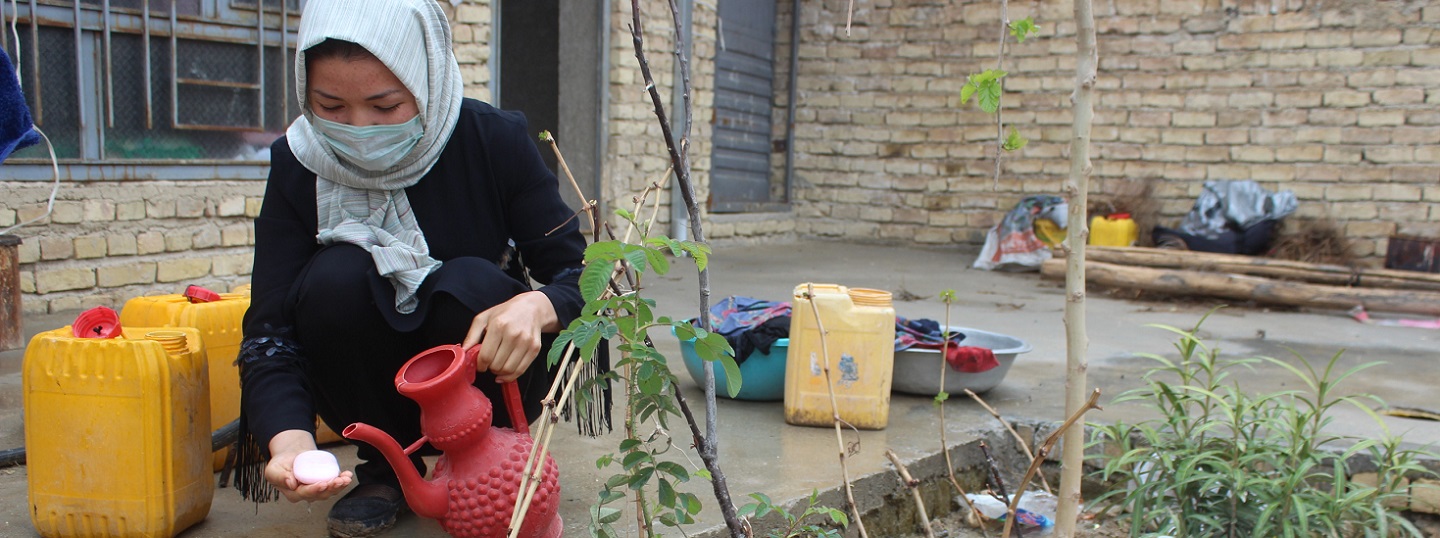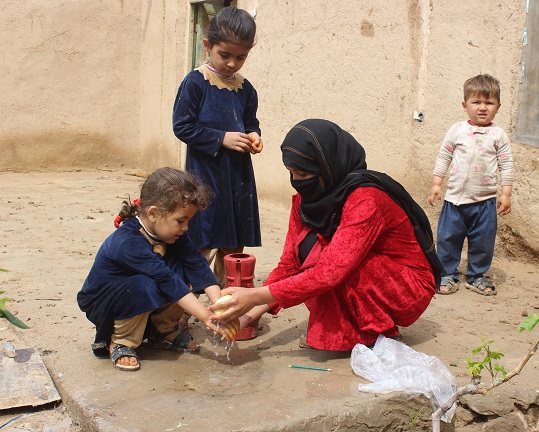
Meet Zahra, the Hand in Hand trainer fighting Covid-19
When Zahra started working for Hand in Hand six months ago, the 25-year-old thought she’d be training women to run their own micro-businesses, helping them thrive in the long term. Now, as the country braces for a Covid-19 crisis some experts fear could be globally significant, Hand in Hand’s youngest trainer finds herself fighting for their short-term survival instead.
“It’s a very heavy responsibility and we feel a sense of fear. If someone has the virus, it’s difficult to control it,” says Zahra. “On the other hand, it’s a pleasure to help our people, who are really in need and live in poverty.”
Across Hand in Hand Afghanistan the story is the same, as the entire organisation retools – seemingly overnight – to respond to the threat of the virus. Between thousands of members living in hard-to-reach areas, deep bonds with local officials, and a senior management team with decades of humanitarian experience, Hand in Hand Afghanistan is uniquely well-suited to help. So when a government lockdown caused the suspension of our usual training on 30 March, we were ready to adapt and keep fighting.
Phase One of Hand in Hand Afghanistan’s Covid-19 Emergency Response kicks into gear on 5 April, as teams fan out across Parwan, Balkh and Herat Provinces delivering soap, chlorine solution and virus prevention training to some 26,000 people. Fundraising for Phase 2, where we hope to at least double that number, is underway now.
“We consider it our duty to inform people about methods of prevention. We can save lives,” says Zahra. “I had dozens of members who weren’t aware about the coronavirus and how to reduce the risk of infection until I told them.”

Handwashing time for Sharifa and family.
Sharifa, 24, was one of them.
“Zahra told us about coronavirus and how dangerous it is,” says the mother of four young children. “She gave me and other women health instructions such as not to go to crowded places; to wash our hands repeatedly with soap many times throughout the day; to use a mask and gloves, which we have for our poultry farm, if we go out in public; and to cover our mouths with a cloth when we sneeze.”
With no health services in the area, Zahra worries that Hand in Hand’s is the only help Sharifa and thousands more like her will get. “And even if they can make it to the public hospital in Mazar, we know their capacity is very low. They don’t have the equipment to cope,” she says.
One day, Covid-19 will pass – a global health crisis leaving a global economic crisis in its wake. When that day comes, Hand in Hand will be ready to help our members work their own way out of poverty, the same we have since Day One. Until then, we’re fighting Covid-19 with everything we’ve got.
“The second thing I worry about right now is the financial aspect,” says Sharifa. “The first thing is our health.”
By the numbers
4,000 households reached
26,000 Afghans provided with soap and chlorine solution
20 minutes of virus prevention training per household
Next case study: Meet Gloria, the former refugee growing crops – and profits
